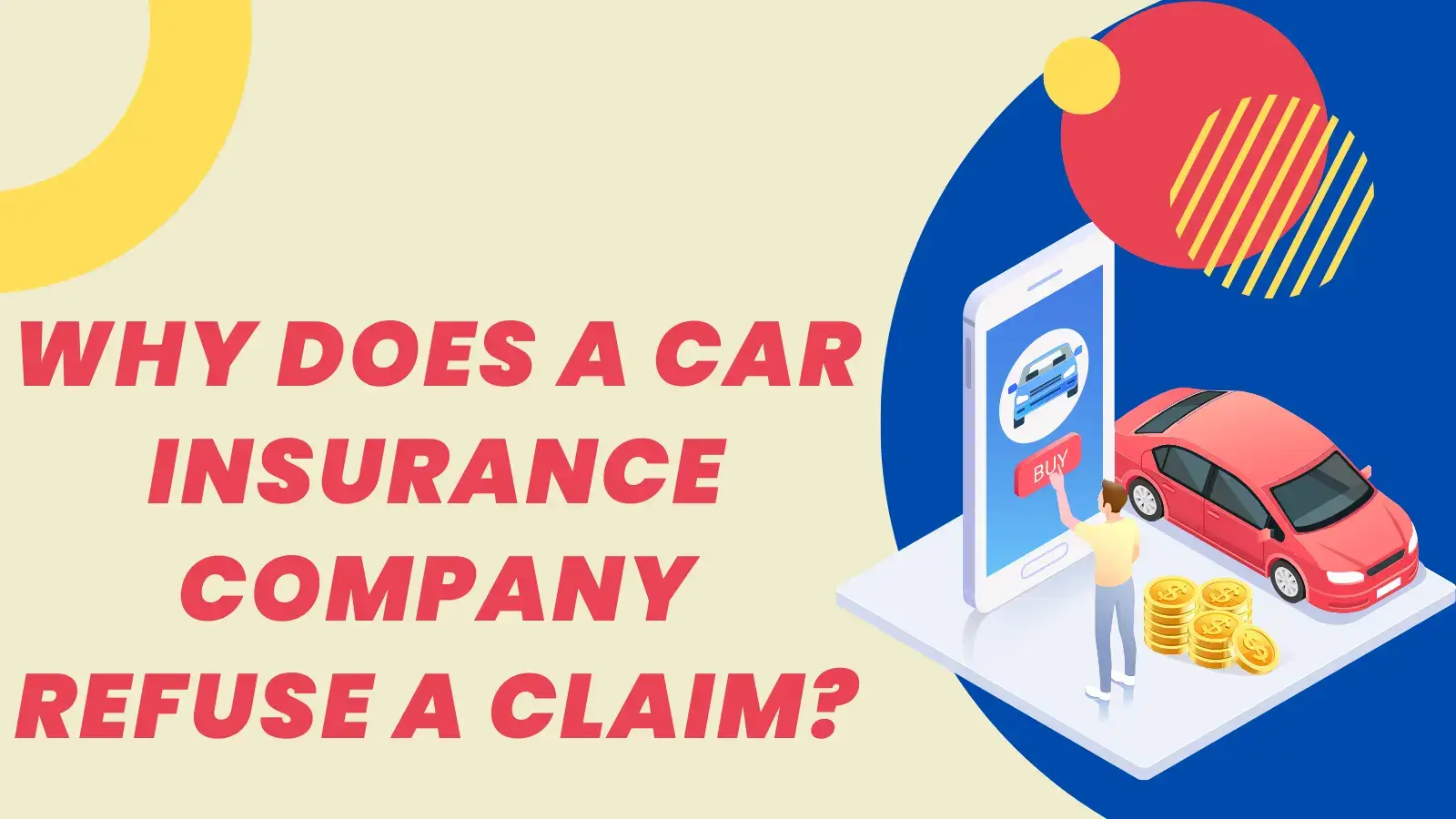Why Does a Car Insurance Company Refuse a Claim?
Receiving a denial response from your car insurance company can be stressful. But don’t worry! You always have an opportunity to appeal the decision of your insurance company. However, before doing that, it’s important to know why a car insurance company refuses a claim so you can prepare yourself for the next steps.

Why Did the Car Insurance Company Refuse My Claim?
There are so many reasons that can lead to the denial of your car insurance claim. The eyewitness accounts, police reports and the reconstructed scenes of the accident may influence the results. But sometimes, the claims cannot be approved due to some deceitful information provided. That’s why when reporting, one has to be truthful. If you get a letter from the insurance company, make sure that you read it properly because it indicates reasons as to why your claim was rejected. Other than that, here are a few typical reasons why a claim might be rejected:
Limited Insurance Coverage
Picking the cheapest car insurance with the lowest coverage might save you money initially. However, this may not be enough if you get involved in a severe accident that involves injured persons or property worth a large amount of money. For instance, if your policy is capped at $35000 of property damage and you destroy something that costs $50000, then your insurer may only compensate $35000. This means that if you had to make a claim, you would have to bear the balance of $15,000 and your claim may not be honored at all.
Inactive Insurance Policy
If you fail to pay your insurance bill on time then your insurance policy may be terminated and you are left without insurance at some time you may need it. That’s why you should always make your car or home insurance payments as this will ensure that you are always covered.
Not Covered by Policy
Your car insurance claim could be declined if you are not under the right car insurance policy. For example, if your policy does not contain collision or comprehensive car insurance coverage and, as a result, your car is stolen or you are involved in an accident, your claim will be rejected. When the adjuster considers your claim, they determine whether the claim is within your policy’s coverage. If not, your claim may be rejected.
Collision With an Uninsured Driver
If you are involved in an accident due to the negligence of another person, it may be quite difficult to locate their insurance information. If you do not have uninsured motorist coverage and fail to establish the identity of the driver or the driver leaves the scene, your claim is likely to be dismissed.
The Insurer of the Driver at Fault Declined Your Claim
Your claim could be denied if the other driver gives the wrong information or if they have inadequate insurance. In no-fault states, you may be responsible for your medical expenses up to the limit of your policy regardless of who is at fault.
How to Appeal a Car Insurance Claim Rejection?
If you believe your car insurance claim has been unfairly rejected, here are ways to challenge the decision.
- Collect Evidence: Make sure you have all the relevant papers such as the police records, statements from the eyewitness, photos, and medical records. Ensure that you take photocopies for the insurance company and retain the originals with you.
- Write an Appeal Letter: It is necessary to give as much detail as possible when describing why you disagree with the denial. Make reference to the policy information and also the letter of denial. List all papers you have gathered and explain as to why they correspond to your case.
- Get Legal Help: If you are still unsure about the process or need some professional advice, then you should seek the services of an attorney. They can revisit your case, draft the demand letter, and assist you in challenging the denial. While this may be expensive, it could prove useful if you are right and have a good reason to sue.
It is necessary to know why the insurance claim was denied. Of course, many of these denials are appropriate, but some of them are not. Appealing can sometimes reverse the decision or lead to a settlement.

